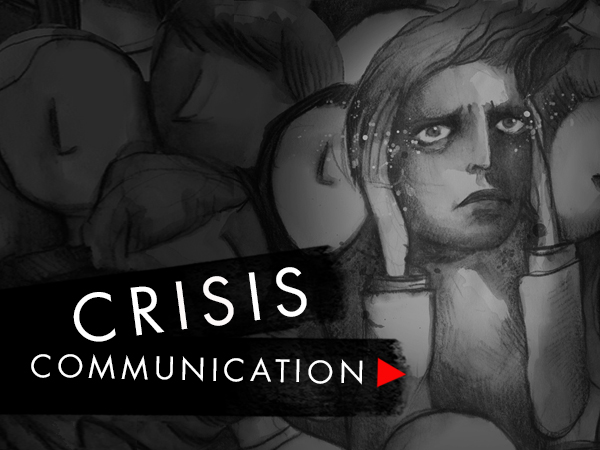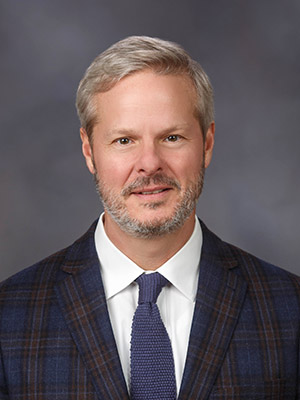UMMC experts say television series can open door to suicide discussion

Published on June 01, 2017
NOTE: This article originally appeared in the June 2017 issue of CONSULT, UMMC's monthly electronic newsletter. To have CONSULT, and more stories like this, delivered directly to your inbox, click here to subscribe.

The controversial Netflix series “13 Reasons Why” has given parents plenty of reasons to be concerned about what their teenage children may be watching, what they may be experiencing and what they may be thinking, according to experts at the University of Mississippi Medical Center.
Actress and singer Selena Gomez is an executive producer of the series, which tells the story of a California high school student who finds a box of cassette tapes on his doorstep. Recorded by a classmate who has recently committed suicide, the tapes have been passed among the individuals whose actions she claims contributed to her decision to kill herself.
Based on the book of the same name by Jay Asher, the series depicts graphic scenes of rape, suicide, cyberbullying and harassment. While viewer discretion is in order, pediatric mental health professionals at UMMC advise parents to use the series as a way to initiate important conversations with their teens.

Mangum-Hollomon
Dr. Shana Mangum-Hollomon, a psychiatry resident at UMMC, has this message for parents discussing bullying and other issues with their teens: “It's good to start somewhere.”
“A lot of young people go through these experiences,” Mangum-Hollomon said.
“It's important to understand that the vast majority of individuals who experience these horrible adversities don't die by suicide,” said Dr. Courtney Bagge, associate professor of psychiatry. “Conversely, many reach out, talk to others about their problems and seek professional help or find other adaptive ways to cope.

Bagge
“There is hope and they go on to live healthy, meaningful and productive lives.”
Bagge emphasized the importance of having an open conversation with teens about these struggles and to inquire about suicide.
The number of suicides in the U.S. has increased 24 percent from 1999 to 2014, according to National Center for Health Statistics figures. That rate for females 15-24 has increased 53 percent during the same period. The rate for males in the same age group has grown by 8.3 percent
Parents often shy away from discussing the topic of suicide, Bagge said.
“Parents are afraid of planting the idea, but we know that asking someone about suicide doesn't put the idea of suicide in his or her mind or make that person suicidal. That is a myth.”

Instead, according to Dr. David Elkin, professor of psychiatry, parents should use the topic of “13 Reasons Why” as a way to step into discussions with their children.
“Ask them if they have watched '13 Reasons Why' and start from there,” Elkin said. “Talk with them about some of the things that happen in the show, such as cyberbullying, and ask them if they have been bullied or if a friend has.”
He said parents should consider watching the series with their older teens who are interested in the program.

Houston
“You want to encourage your child to say something,” said Dr. Joy Houston, associate professor of psychiatry.
Elkin said there are a few “don'ts” for parents starting these talks.
“Don't say, 'Don't watch that show,' to your children, because that will make them want to watch,” he said.
“There is so much stigma and fear about talking or asking about suicide, which decreases the ability to detect those at risk and secure appropriate intervention,” Bagge said. “Don't let your fears prevent you from inquiring and instead ask directly.
“For instance, say, 'Given the real struggles that teens have to deal with, have you ever thought about killing yourself?' Have an honest and open discussion.”

Withane
Parents who think their child is struggling with life challenges or adversity should contact their child's primary care provider, said Dr. Nisha Withane, a psychiatry resident at UMMC.
“Together they can determine whether screening for depression or a psychiatric consult is needed,” Withane said.
Bagge, who has spent the last decade researching warning signs for suicide, emphasizes that everyone who sees or hears warning signs for suicide can help. She suggests listening nonjudgmentally, taking the person seriously, assisting him or her in getting help from a mental health professional, or contacting a crisis line. She said if the individual is experiencing immediate warning signs, accompany him or her to an emergency department for evaluation or call 911.

Merideth
According to the American Association of Suicidology, about 120 Americans die from suicide each day, and 15 of them are between the ages of 15-24. Dr. Philip Merideth, professor of psychiatry, said teens can be prone to suicide and risky behavior from a physiological standpoint because their brains, particularly the frontal lobe, are not fully developed, making impulse control more difficult.
“Parents may not want to talk about these things, and there can be a stigma regarding suicide and mental health,” Withane said, “but it's out there, so we might as well talk about it.”
Bagge said the series also has spurred efforts to promote hope from teenagers. Programs such as “13 Reasons Why Not,” started at a Michigan high school, encourage youths to pinpoint people who have helped them through difficult times and express reasons to live.
To request an appointment with a UMMC physician to discuss symptoms of suicide, call (888) 815-2005.
How to help
Individuals should call 911 or seek immediate help from a mental health provider if they hear, see or experience any of these behaviors:
• Someone saying he or she is going to hurt or kill himself or herself
• Someone looking for ways to kill himself or herself by seeking access to firearms, pills or other means; or
• Someone talking or writing about death, dying or suicide.
Individuals should contact a mental health professional, call the National Suicide Prevention lifeline at 1-800-273-TALK or text HOME to 741741 if they or someone they know exhibits any of these possible warning signs:
• Talk about being a burden on others;
• Feel hopeless or that they have no purpose;
• Show rage or seek revenge;
• Act recklessly;
• Feel trapped, like there's no way out;
• Increase alcohol or drug use;
• Withdraw from friends, family and society;
• Feel anxious or are observably agitated;
• Are unable to sleep or sleep all the time;
• Experience dramatic mood changes; or
• See no reason for living or have no sense of purpose in life.
Source: National Institute of Mental Health; American Association for Suicidality Work Group
Helpful apps to improve mental health/coping skills
• Mood Tools: An easy-access kit of tools for tackling depression and anxiety symptoms in the moment includes self-assessment, links to high-quality recommendations/information, videos to improve mood, cognitive restructuring assistance and activity planning/ suggestions. Android and iOS versions are available at www.moodtools.org.
• Virtual Hope Box: Tools for coping, relaxation, distraction and positive thinking are available in this tool kit designed to increase positive coping in difficult/stressful situations. Includes recordings of guided meditation and breathing exercises, uplifting quotes, distracting games and highly customizable features to incorporate pleasant photos, music and more. Android and iOS versions are available.
• Headspace: A guided meditation app includes focused exercises for helping beginners experience the distress-reducing effects of brief, daily mediation practice. Android and iOS versions are available at www.headspace.com.


